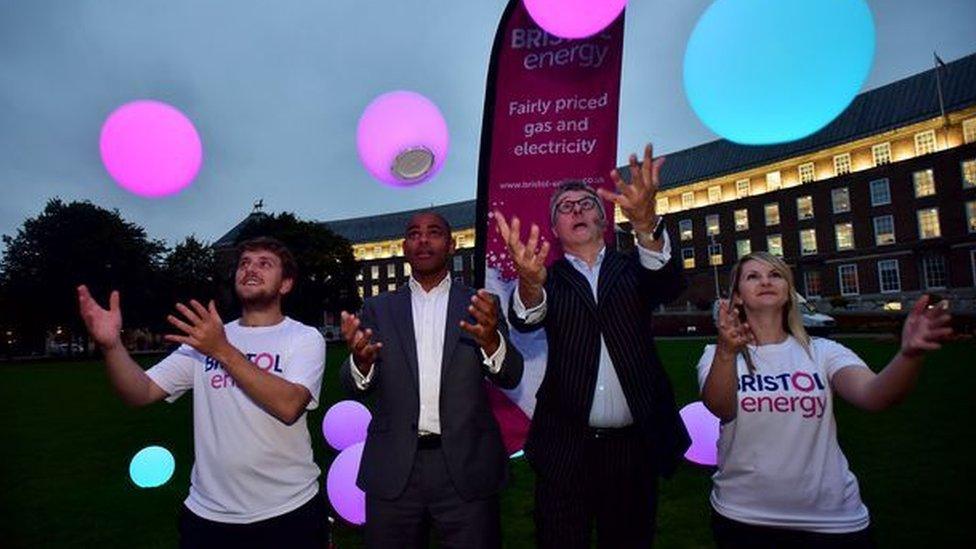Bristol Energy's business plan 'overly unrealistic'
- Published

Bristol Energy was set up to provide ethically-sourced and low-cost energy
A lack of proper scrutiny and an "overly unrealistic" business plan led to millions of pounds being lost by Bristol Energy, a report has found.
The failed energy company, set up by Bristol City Council, lost around £46m.
A report examined why extra council investment was approved despite the heavy losses.
The city's mayor Marvin Rees said the figures showed why the council should "never have been operating in the commercial energy market".
Last week the company's annual report revealed a £14.8m loss, taking the overall losses for Bristol Energy (BE) to around £46m.
This report, by council auditors Grant Thornton, external, has looked into the last full financial year of trading - 2019/2020.
'Inadequate'
It criticises the decision making that saw large sums of public money being lost and questioned why the council kept propping it up.
The report said the flow of information from the company's shareholders to the council cabinet was "inadequate".
"As a result, the information and papers provided at the January 2020 Cabinet did not clearly state the risks faced by BE, or provide sufficient robust information to enable Cabinet to make an informed decision," it said.
It added that the company's business plan "represented an overly unrealistic view of how BE might perform".
The report raised concerns that the council's audit committee should have had "closer involvement" with issues around BE.

It was hoped Bristol Energy would make a profit for the city council
Bristol Energy, set up to provide ethically-sourced and low-cost energy, sold its domestic and business accounts in the autumn of 2020, helping to recoup some losses.
Craig Cheney, cabinet member for finance and deputy mayor, said many of the issues in the report were caused by operating in a commercial marketplace meaning some information could not be shared.
"At no point did we sign off on taxpayers' money knowing that it would never be returned, there was always a view that we would make money back," he said.
'High-risk endeavour'
Mr Rees said: "This report shows exactly why Bristol should never have been operating in the commercial energy market.
"We were left needing to balance the legitimate needs of owning a commercial company in a high-paced, volatile marketplace without the possibility of a governance system that could meet those needs or the in-house experience of running an energy retail service."
He added that his administration had taken "reasonable, well-governed" decisions while "trying to protect taxpayers' money".
The setting up of Bristol Energy, which happened under Mr Rees's predecessor George Ferguson, was described by the current mayor as "a high-risk endeavour" which came with a "flawed business plan".
"We acknowledge the report's recommendations around governance but ultimately, none of the findings in this report have any effect on the eventual outcome," Mr Rees added.

Follow BBC West on Facebook, external, Twitter, external and Instagram, external. Send your story ideas to: bristol@bbc.co.uk , external
Related topics
- Published11 January 2021

- Published21 July 2020

- Published27 May 2020
